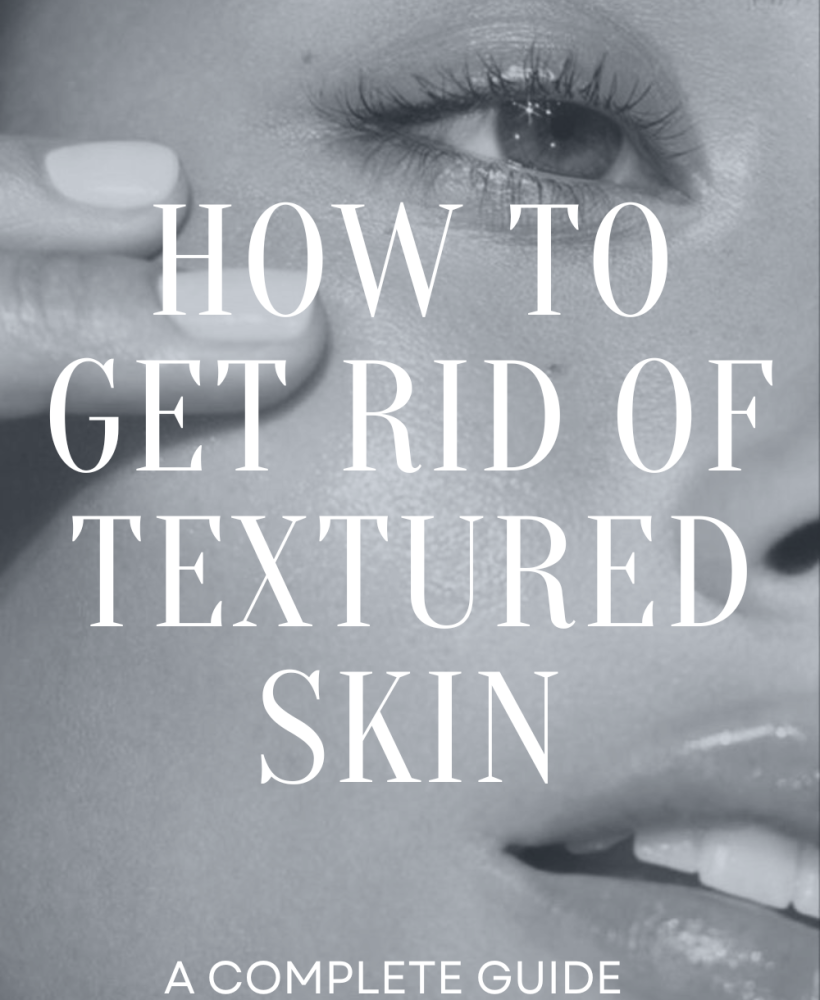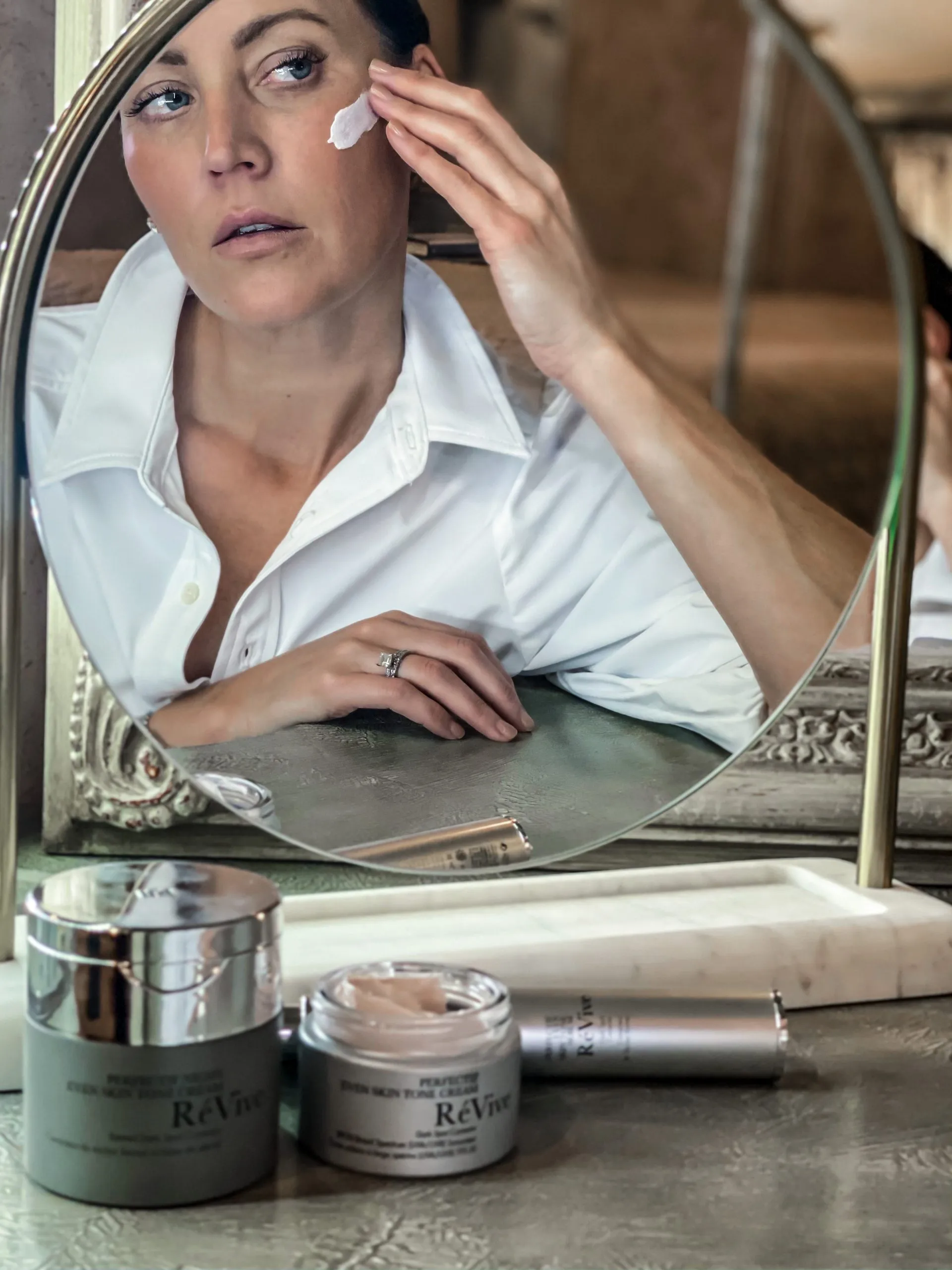When it comes to hair care, most of us spend time thinking about the products we use on our strands, but what about the skin underneath? Your scalp plays a vital role in hair health, however it’s often overlooked in most beauty routines. Scalp exfoliation, while highly beneficial, is one of the most undervalued treatments. Skipping this essential step can lead to scalp buildup, clogged follicles, irritation, and even hair thinning over time.
So, in today’s post, I’m sharing a complete guide on how to exfoliate scalp properly and safely. Whether you struggle with dry scalp, seborrheic dermatitis, or product buildup from styling products, learning the benefits of scalp exfoliation and how to do it can help promote a healthy scalp, stronger strands, and overall hair growth.
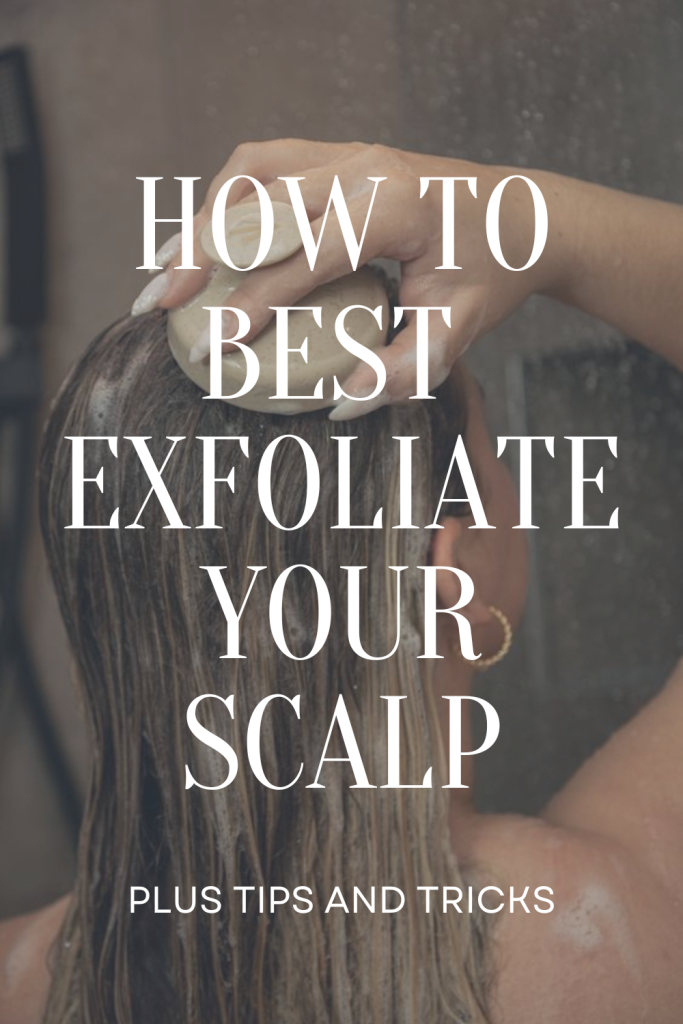
How to Exfoliate Scalp
Understanding what scalp exfoliation is and how it works is so important because it can help you appreciate its benefits and motivate you to make it a regular part of your hair care routine. This post will walk you through what exfoliation means for the scalp, why it matters, what products to use (including both physical and chemical exfoliants), and how often you should do it depending on your scalp feel and hair needs.
What Is Scalp Exfoliation
Scalp exfoliation is the overall process of removing dead skin cells, excess oil, and product buildup from the scalp using physical or chemical exfoliants scrubs. Unlike facial exfoliation, scalp exfoliation targets the root of your hair, literally. Since the scalp is covered in hair and more prone to trapping debris, it requires its own method of exfoliation including scrubs, brushes, or formulas made specifically for the hair and scalp.
There are two main types of exfoliation:
- Physical Exfoliation: Uses a scalp scrub or brush to manually remove buildup.
- Chemical Exfoliation: Uses ingredients like salicylic acid or glycolic acid to dissolve dead skin and excess oil.
Both types can be effective, depending on your scalp type and how sensitive your skin is.
Why Should You Exfoliate Your Scalp
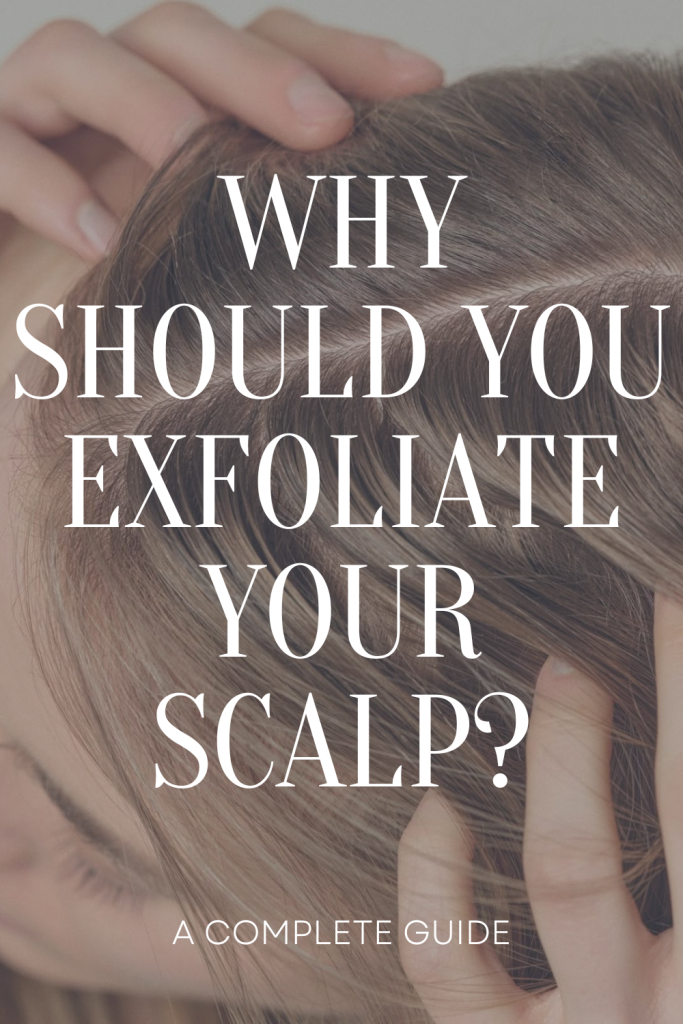
Prevents Scalp Buildup
Between care products, styling products, and natural sebum, your scalp can accumulate a lot of debris. Scalp exfoliation helps overall remove excess product buildup that regular shampooing can’t reach.
Promotes Hair Growth
Clogged follicles can stunt hair growth. By keeping the scalp clean and stimulating circulation, exfoliation encourages healthier hair growth from the root.
Reduces Itchiness and Dry Scalp
Also, if your scalp feels itchy or flaky, exfoliating can help eliminate the dry, dead skin causing irritation. Especially for those dealing with dry scalp or seborrheic dermatitis.
Enhances Absorption of Hair Care Products
When your scalp is clean, serums and nourishing hair treatments absorb better, making your routine more effective.
Improves Overall Scalp Health
Exfoliation supports a balanced scalp environment, keeping both your hair and scalp in optimal condition.
What To Use To Exfoliate Scalp
Scalp Scrub
A physical exfoliant made with sugar, salt, or microbeads. Gently massaged into the scalp, it helps remove excess buildup, debris and boosts circulation. This one by Briogeo is a favorite.
Tip: Choose a gentle formula for sensitive scalps and avoid over-scrubbing.
Salicylic Acid Scalp Treatment
A chemical exfoliant that helps dissolve dead skin and reduce oil. Ideal for oily or acne-prone scalps.
Bonus: It also helps treat seborrheic dermatitis and flaky patches.
Scalp Exfoliating Brush
Use a soft-bristled brush to manually exfoliate while shampooing. This tool also helps evenly distribute product.
DIY Natural Exfoliants
Try a mixture of brown sugar and coconut oil or a baking soda rinse as a natural alternative. These work well for those avoiding synthetic ingredients, but make sure they’re safe for your specific scalp needs.
How To Exfoliate Scalp
Here’s a step-by-step guide to help you exfoliate your scalp safely and effectively.
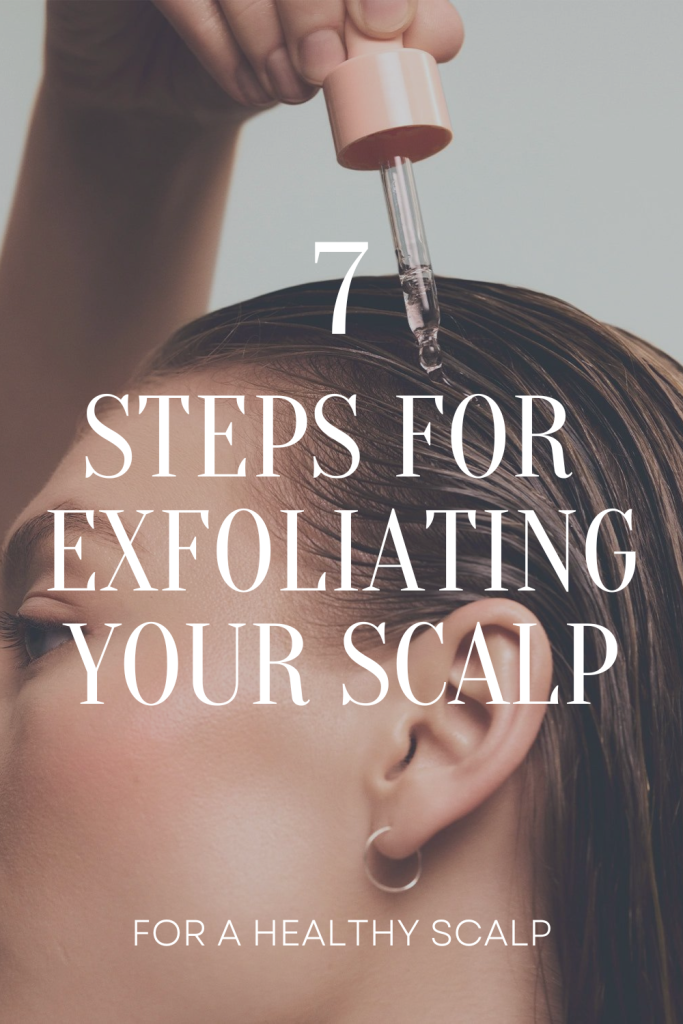
Step 1: Start With Damp Hair
Wet your hair with warm water to loosen dirt and soften the scalp. This helps your exfoliant work more effectively.
Step 2: Apply Scalp Exfoliant
Using your fingers, a scalp brush, or the applicator tip, apply your scalp scrub or chemical exfoliant directly to your roots. Focus on areas that tend to feel oily or itchy.
Step 3: Massage Gently
Massage the exfoliant into your scalp in small, circular motions for 2–3 minutes. Don’t apply too much pressure. Gentleness is key, especially for sensitive scalps.
Step 4: Let It Sit (If Chemical)
If you’re using a salicylic acid or glycolic acid treatment, allow it to sit for 5–10 minutes to break down dead skin cells and oil.
Step 5: Rinse Thoroughly
Rinse with warm water until all product is completely removed. Avoid hot water, which can strip the scalp of natural oils.
Step 6: Follow With a Gentle Shampoo
Use a sulfate-free shampoo to cleanse the scalp without over-drying. This also helps remove any remaining exfoliant particles.
Step 7: Apply a Hydrating Conditioner or Mask
Finish your routine with a nourishing conditioner or hair mask to hydrate and soothe the scalp after exfoliation.
A cool high-tech option that helps tackle hair thinning with laser therapy, red LED light, and T-Sonic™ massage is the FAQ™ 302 Laser & LED Hair Regrowth Scalp Massager. It not only boosts hair growth at the hairline, crown, and temples but also gently exfoliates the scalp by increasing circulation and loosening buildup. It’s a great all in one option if you’re looking to support hair regrowth and keep your scalp healthy.
Ask ChatGPT
How Often Should You Exfoliate Scalp
The frequency depends on your scalp type and the type of exfoliant you’re using:
- Oily scalp / product buildup: 1–2 times per week
- Normal scalp: Once a week
- Dry or sensitive scalp: Every 10–14 days
Exfoliating too often can cause irritation, dryness, or even trigger more oil production. As always, listen to how your hair and scalp feel and adjust as needed.
For more targeted tips on scalp care, check out these related posts:
In summary, exfoliating your scalp is a crucial step to maintaining both scalp health and hair vitality. From removing excess buildup to promoting hair growth and enhancing product absorption, the benefits of scalp exfoliation are undeniable. Whether you prefer a physical exfoliant like a scalp scrub or a chemical option like salicylic acid, consistency and proper technique are key.
Ready to upgrade your hair care routine? Make scalp exfoliation your new beauty ritual — your hair will thank you for it.
Scalp Exfoliation Favorites
Don’t forget to pin to save for later!
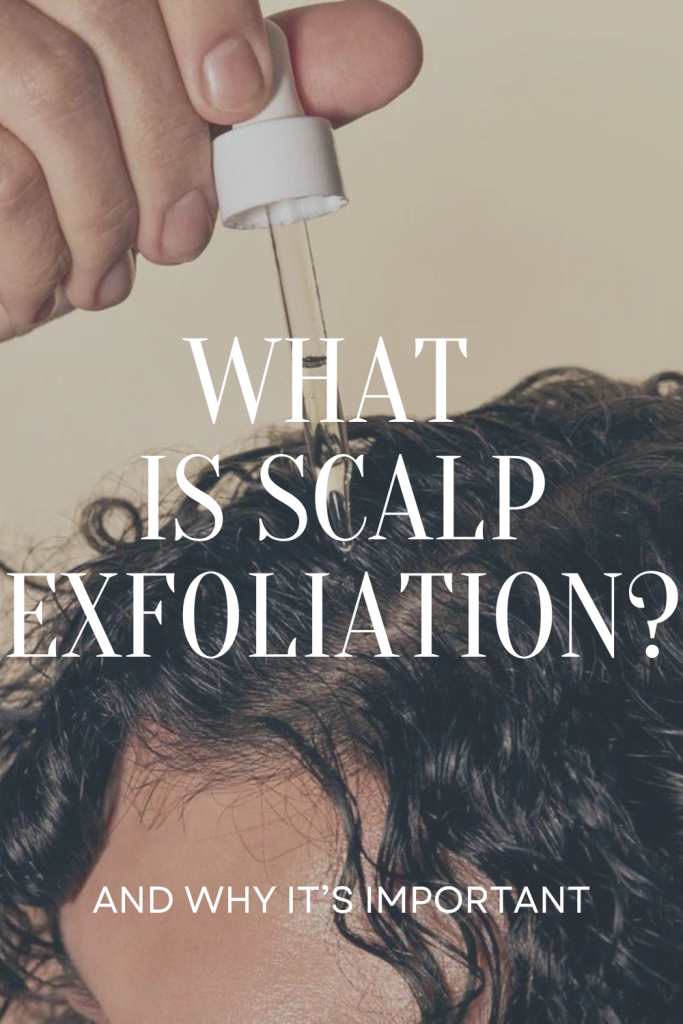
Be sure to check out my most recent posts for more style inspiration!
- Chic outfits for everyday life
- 2026 Nail Trends to Try this Year
- What Is Streetwear Fashion
- How To Dress Up Sweatpants
- Chic & Cozy: Your Guide to Winter Travel Style
Please feel free to email me at thegraydetails@gmail.com if you have any questions! I’m always happy to help with styling or picking out a specific outfit for an event! Have an amazing day!!
You can also download the free LIKETOKNOW.IT app and follow me HERE.
STAY IN THE KNOW: Don’t forget to sign up for my exclusive Newsletter for STYLE TIPS, SALE ALERTS, AND MUCH MORE!
As always, thank you so much for stopping by today, I truly appreciate all of you! xx, Amanda
FOLLOW ALONG
Instagram | Pinterest | Facebook | Shop Instagram | You Tube



